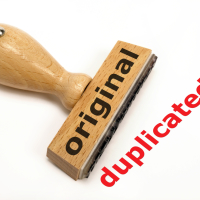It doesn’t matter if you’re a large company or a small one, there are people out in the business world who want to take what you have worked long and hard to obtain. You want to protect all of the data that you have accumulated over the years. But what you learn from your information management team is that some software has been used to come onto your website and copy nearly every piece of data you have — you’ve been web scraped.

Examining Web Scraping
People look at the information on your website on a regular basis. You put the information there so that your customers can learn about your products and services. When someone is viewing your website, they are essentially gathering data from your company. For many websites, it would take an individual a very long time to gather all of the data stored there. However, there are programs that employ a technique known as web scraping which can literally gather all of the data from your website in a matter of a few hours or perhaps even minutes. These web scraping bots are efficient, methodical, and untiring machines that simply scour your website for every piece of usable information. They then return that information to their users.
A quick glance at your search engine’s results page will display hundreds of web scraper services and software suppliers. You can order a web scraping on any website you want, all you need is an accurate web address. The problem with web scrapping at the moment is that there are numerous legal cases pending that might have a significant impact on web scraping. Although the early court decisions seemed to suggest that information on the net was accessible to anyone and that web scraping was no different than when an individual gathers data, recent rulings are steering towards protecting web site data.
Price monitoring and comparison is a common application of web scraping for businesses. Businesses use web scraping to monitor their competitors’ prices so that they can keep their own prices competitive at all times. Some manufacturing companies use data scraping to monitor retailers to ensure that they’re not listing their products below the Minimum Advertised Price. Popular sites to scrape data include Amazon and eBay.
However, there are different purposes for web scraping, and this is where the rulings in the legal system get into trouble. Standard search engines are, in essence, web scrapers. People use information from search engines every day. This form of information gathering is not only acceptable but helpful. The courts seem to be leaning toward the idea that if the information is helpful to the public at large, than no crime has been committed. It’s when that information is actually used to harm or compete against another company that there is question regarding its legality.
Prevention Tips
Many companies are not interested in waiting for the courts to make a decision about web scraping. New software is being written each day which offers some protection against the bad bots by blocking them. This new software has built in some rather interesting methods for blocking or identifying these negative types of programs while allowing legitimate search engines to do their job.
The difficulty with attempting to block web scrapers and other bots is that the technology behind those bots changes every day. In order to keep up with the bots, you need to have web site software that is as current and up to date as what the bot designers are using. Having this as a baseline may be a good place to start, but staying ahead of the harmful bots and web scrapers requires a sophisticated system that can anticipate their next evolutionary changes.. Here are some tips to prevent site scraping and content theft.
- Manual code entry. Bots may be sophisticated, but they are unable to accurately interpret the images or audio clues given by even the simplest ‘captcha’ code system. These systems require the human element to recognize the value of the code and enter it into the system correctly. Failure to successfully navigate a captcha system will easily prevent web scraping.
- Blacklists. There are some services available that will provide you with a listing of known web scraper IP addresses. You can use these lists to block users from that site gaining access to your data. These lists are updated regularly, reflecting the most currently known web scrapers sources.
- Download detection. When one individual gathers information from your site, the speed in which they can download that information is predictable. When a web scraper begins gathering information, it happens at a rate that far exceeds the individual’s rate. Measuring this rate can identify web scrapers and add them to your IP black list.
Web scraping is a billion dollar industry, and the people behind these programs and bots are serious about what they do. If you want to protect your site from being scraped, then it is up to you to employ the most current state-of-the art protection software available.
